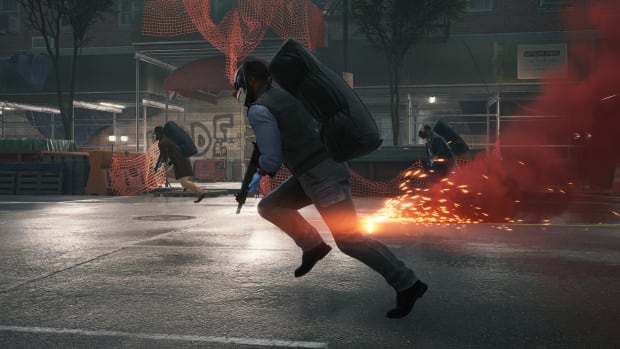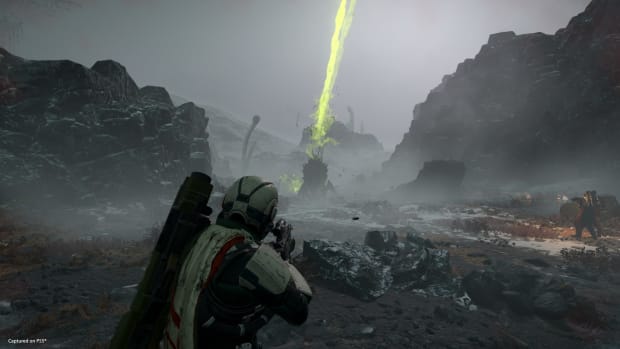
Total War: Pharaoh High Tide interview – spicing up hordes and making history into gameplay mechanics
Released in October 2023, Total War: Pharaoh put its users in charge of the biggest players in the Eastern Mediterranean at a time in history we today call the Bronze Age Collapse – an era of chaos and crisis on a civilization-ending level. Pharaoh tasked players to compete for the throne in Egypt or the Hittite Empire and change the course of history by preventing this collapse, which the game largely presents as being caused by a mysterious force of invaders: Sea Peoples.
Fans were very sure even before the game was released that we’d eventually get to be on the opposite side of this conflict – that we’d get to end civilization instead of preserving it. Creative Assembly Sofia is making this prediction a reality in the free High Tide update for Total War: Pharaoh and I had the chance to speak with game director Todor Nikolov about it last week.
“We’ve always wanted to include the Sea Peoples as a playable side in this conflict, where you can cause the destruction of the entire world instead of avoiding it,” he tells me. “In the game, we represent them as a major threat – as the major cause behind the Bronze Age Collapse. Well, historically that’s not exactly the case. It’s much more complex than that and their role might not have been that significant, but then we are making a Total War game, so we need to have sides fighting each other.”
I chatted with Nikolov about Pharaoh last year and one of the topics of our discussion was how difficult a time period the Bronze Age Collapse was to work with due to the scarcity of sources about it. Here’s the thing: We know even less about the Sea Peoples. The Egyptians portrayed them a bunch of times on victory monuments and there are vague, apocalyptic descriptions of them, but that’s about it. How do you create a culture essentially from scratch that can stand side by side with actual historical cultures without feeling out of place?
“What we did first was to look into the historical sources: The very few mentions of the different tribes of Sea Peoples and, as you mentioned, the depictions on Egyptian propaganda pieces of art like from Medinet Habu, the temple of Ramesses III, where he slaughters heaps and heaps of Sea Peoples with his almighty bow,” he explains. Those depictions provided the necessary clues to give Total War: Pharaoh’s Sea Peoples their visual identity and inform how their units may look and behave. Egyptian sources, too, provided the majority of the faction names used for the Sea Peoples in the game, such as the Shekelesh or the Lukka. “But we did not include two of those: We did not include the Sherden and we did not include the Peleset. We kept those for the DLC.”
Another major source of inspiration was the treasure trove of academic works about the Sea Peoples, especially all the theories about their origin, as these informed the cultural makeup, mechanics, and motivations of the playable factions.
Altogether, the developers could find out more about the Sherden and the Peleset than about any of the other tribes, making them their best options to flesh out for the game. This provided them with the opportunity to explore two scientific origin theories with different gameplay implications.
CA Sofia went with the theory that places the Peleset’s origin as somewhere around the Aegean and that of the Sherden as Sardinia – the latter, Nikolov tells me, actually held a great benefit for the team, as it was already familiar with the Nuragic culture at home on the island: “It is in fact the second time that we worked on a project that featured the Sherden or mentions of the Sherden. Years ago, we developed the Rise of the Republic DLC for Total War: Rome 2, which featured the island of Sardinia and similar tribes. So we already established the Sherden and Sardinia relationship and decided to go for it once more.”
Anyone playing as Ramesses in the Pharaoh base game can recruit Sherden units as well – a reference to the ruler defeating and forcibly settling the tribe on his territory, allowing him to draw on their manpower in later years. I ask Nikolov if we could expect this historical process to be represented in a more expanded form in High Tide.
“Yeah, absolutely. We are adding this new Outpost called Warrior’s Refuge. You can construct it in your lands and it acts much like a Fort, where you can station units. They will support any battle in this territory, so this is a powerful protective building,” Nikolov explains. “This is a major way for any faction to gain units from the Sea Peoples, not only from the Sherden or the Peleset, but also the units from the other invaders.”
This is also a way for the developers to portray the Sea Peoples’ lack of unity: Some groups may have different goals and motivations or get separated from the main force, finding themselves in the territory of established rulers as settlers and mercenaries.
High Tide comes with an expansion to the Local Deities system as well, since they’re bringing an array of their own gods with them. This is another way for players to explore different paths: They can stick to the deities of their ancestors and homelands, or choose to worship the gods already present in the Eastern Mediterranean. Nikolov explains, however, that the base game factions will not be able to include the Sea Peoples’ gods in their pantheons – cultural exchange only goes so far. There is a major gameplay reason for this: Worshiping those gods requires being a horde.
Hordes aren’t a new concept for Total War – there have been nomad factions all the way back in Rome: Total War’s Barbarian Invasion expansion. However, CA Sofia saw some potential in High Tide to “spice up the gameplay of hordes a bit.”
Players will have “the option to play as a pure horde, just marching around the enemy territory, razing, sacking, and looting, or they might choose to conquer a settlement or two – or maybe more – and gradually convert themselves into a fully settled faction.”
This opens the possibility of entering the struggle for the throne in Egypt or the Hittite Empire as the Sea Peoples, allowing you to pull off a major twist in history. Nikolov recounts a game during which he started out as the Sea Peoples in Anatolia, only to pack things up and leave for Egypt at a whim. Though the Egyptians didn’t like him very much, he was able to ingratiate himself with enough of them during their civil wars to make a successful bid for the crown.
Conquering territory has the additional benefit of allowing the Sea Peoples to recruit troops native to that region, allowing them to field incredibly versatile armies as well – another cool nod to the historical sources, which suggest that the Sea Peoples even used war chariots after capturing them from the Hittites. They were learning and adapting.
Hordes will be able to conquer Outpost locations even in enemy territory, which is a new feature coming with High Tide. “You can construct your own Outposts in territories with razed cities or even foreign settlements, which is pretty detrimental to the faction that holds said cities while strengthening you,” Nikolov says. “We want to enable a playstyle that allows the user to weaken an enemy territory by sneaking in some generals to build Outposts before marching in to take something that’s already half-developed.”
Horde gameplay is being further enhanced by the new Ancient Legacies available in High Tide – the Path of the Marauder, which can be chosen by base game factions as well (Irsu should be happy with this one), and the Path of the Sea Peoples, which is only available to the newcomers. While the Path of the Marauder strengthens typical horde goals like razing settlements, the latter is helpful for players aiming to transition from a horde to a settled faction. On this Path, the unit compositions of your armies, the number of settlements and Outposts you have, and so on, will generate points, which in turn indicate the kind of lifestyle you’re currently leading and provide certain bonuses.
“Perhaps you want to make your people into a faction of very efficient traders or very ferocious fighters. Perhaps you need additional food supply and you need to make them into farmers. By adjusting the ratio between settlements, outposts, horde armies, and settled armies you can achieve the kind of specific lifestyle that brings you the needed factionwide bonuses,” Nikolov tells me.
However, he warns: “It’s not always under your control, because if you lose a horde army or two, then your faction might suddenly become something that doesn’t help you right now.”
While settled factions gain access to regional units, hordes generate more resources through the new War Spoils system, which enhances the loot gained from razed towns. These rewards decrease with each settlement a faction owns, giving players an incentive to look in the other direction as well.
One thing doesn’t change for the Sea Peoples even if they settle down: They benefit from the overall level of civilization being low, so even if you’re hoping to found a new empire, you may want to avoid rebuilding the Pillars of Civilization.
Victory for the Sea Peoples is still achieved by score, just like for the other factions, though the way they generate those points is a little different for hordes – naturally, they value actions like razing settlements a lot more.
CA Sofia hopes that High Tide will add another layer to playing as a horde, giving the style a lot more flexibility. This fluid playstyle is heavily informed by the research the team did: It’s unlikely that the Sea Peoples were just out to plunder and destroy – they had likely been looking for new land to settle.
This background also influenced the design of the unit that got most attention from fans in the update’s trailer: ox-drawn chariots.
“It’s very likely that at least some portion of the Sea Peoples came along with their families and their children,” Nikolov explains. “And these wagons were used as means of transportation for goods and people, because they were trying to find a new place to settle; they were displaced, feeling some sort of danger. Then we decided to try and explore what an ox-drawn cart would look and feel like if it were used in actual battle, how it would be used and what purpose it would serve.”
The ox carts will be rather slow and very heavy, which means they’ll be able to break through the enemy lines easily. Instead of turning around for another charge, however, they can then load off the troops they are carrying for a more sustained attack from behind or the flanks. These troops can even re-embark on the carts to be transported to yet another area. “This is something that we didn’t have in the game until this point. We wanted to explore this kind of gameplay where you have to get the vehicle to a location, deploy the units, and then perhaps try and re-deploy them if they survived,” Nikolov says.
The developers have also ensured that all the wonderful customization options from the base game like the randomized start positions will work with High Tide. Nikolov tells me of a funny moment in testing when one developer started a campaign playing as a Sea Peoples faction, but disabled the Sea Peoples’ invasions – it led to an automatic loss on the first turn, “which was beautiful.”
As someone with a history degree and an enduring passion for the subject, I truly appreciate how the developers have taken ancient sources and modern theories into account when creating gameplay mechanics and units – there is something special about seeing historical processes being translated into gameplay you can interact with.
Total War: Pharaoh is available on Steam for $39.99 USD and you can find the full High Tide update patch notes via the link.








